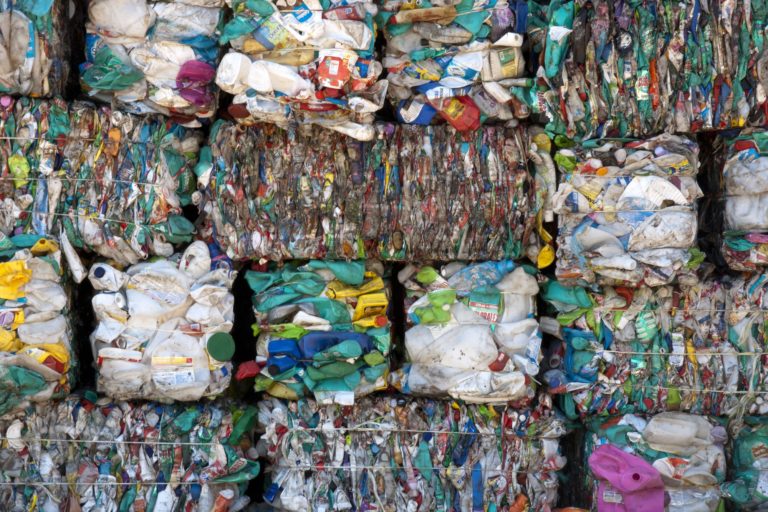Plastic is Poisoning Our Planet | Dive Into Democracy
By: Larissa Liebmann

Plastic is poisoning our planet, but there are actions you can take to reduce your impact
Earth Day is on April 22 and this year’s theme is “End Plastic Pollution.” Plastic plays a large role in our everyday lives — so much so that most of us may not even realize how much we use and dispose of.
Plastic is often used for its versatility and durability, but its durability has had devastating consequences. It can take up to 1,000 years for plastic items to degrade, yet so many are regarded as “disposable.” About one half of all plastic produced is used only once, with only a small percentage recycled. And we have already discarded 75% of all the plastic ever made. That means about 5 billions tons of plastic are already in garbage dumps or littering our lands, waterways, and oceans.
Because most waterways lead to the ocean, millions of pounds of plastic find their way to the ocean every year. The impacts of flooding our oceans with plastic are becoming increasingly visible: starved whales and seabirds are being found on shores with stomachs full of plastic and beaches are being smothered in plastic waste. But some of the damage from plastic is less visible. Rather than degrade, plastic breaks down into tiny pieces, called microplastics. Microplastics are now found everywhere — in ocean water, in the sand in our beaches, and formed into giant garbage patches in the ocean. These microplastics leak toxins and are consumed by aquatic organisms. Eventually, these toxins make their way up the food chain to us.
On top of the environmental impacts associated with plastic disposal, our reliance on plastics perpetuates our use of fossil fuels. The fossil fuel industry plays a role in promoting the use of plastics, as plastic is most often derived from crude oil or natural gas.
Our plastic addiction must be addressed. One way to lessen the amount of plastic produced and disposed of is to recycle plastic products, and there is a lot of progress that can be made on this. For example, in the U.S., less than ten percent of all recyclable plastic is recycled.
However, most plastic can only be recycled a few times, so even better than recycling is reducing the use and disposal of plastic, and there are many ways for individuals and business to do this. For example, there are currently efforts underway to stop the rampant use of plastic straws in bars and restaurants. Some countries, states, and cities are also starting to take action to discourage the use of some plastic products, such as passing bans or fees on plastic bags and plastic straws. There is also increasing interest in creating systems of “extended producer responsibility” for plastic — which is based on the idea that companies that profit from creating and selling plastic products should also pay the costs of cleaning up the resulting pollution and setting up systems to recycle.
Unfortunately, these efforts to move away from plastic are met with resistance from the industries that profit from plastic production. The “American Progressive Bag Alliance” is a lobbying group with the singular goal of stopping plastic bag bans and fees. Groups like this have convinced some states to preempt local efforts to regulate plastic bags.
We all can and should make an effort to reduce our use of plastic. Here are some ways you can take action:
- Take a hard look at all of the plastic you buy and discard. You may be surprised by how much you use. Try to cut out as much as possible and recycle the rest.
- If your state or city does not have a fee or ban on plastic bags, reach out to your local representatives and let them know that you want them to take action to reduce plastic bag use and pollution. You can see current and pending bag legislation in all states on this site, including which states have attempted to preempt local regulation of the use or sale of plastic bags.
- Call your Members of Congress and tell them that you want the federal government to take action on plastic pollution by expanding recycling and decreasing the use of plastic. You can tell them that you think plastic producers should pay their fair share of what is needed to responsibly recycle and dispose of plastic, especially when producing single-use items knowing full well their products may take a thousand years to degrade.
[CongressLookup]
Feature image by BIONIC